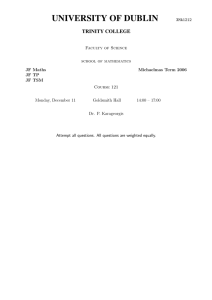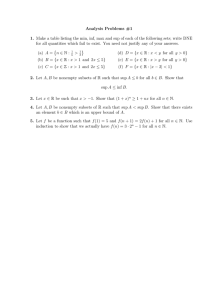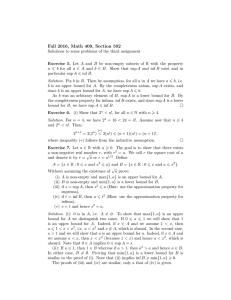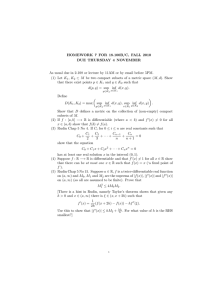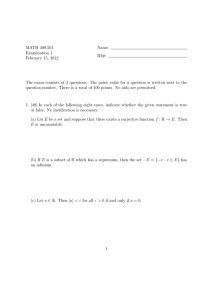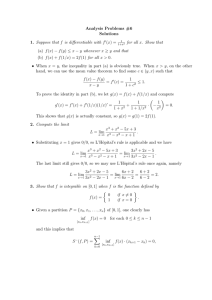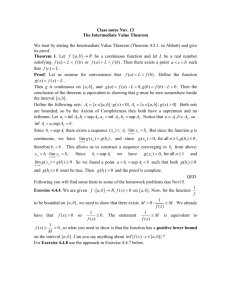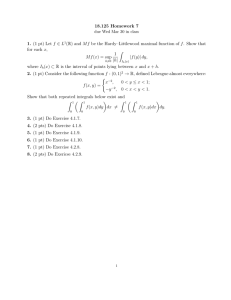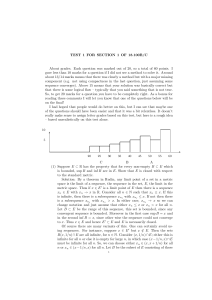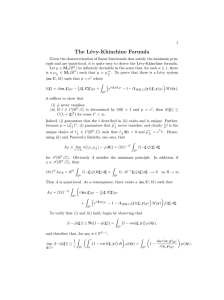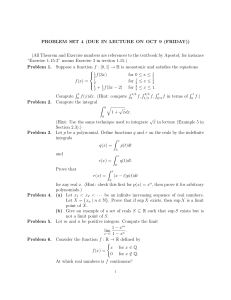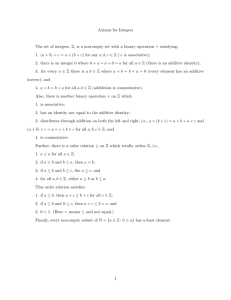Fall 2016, Math 409, Section 502 Second Assignment
advertisement
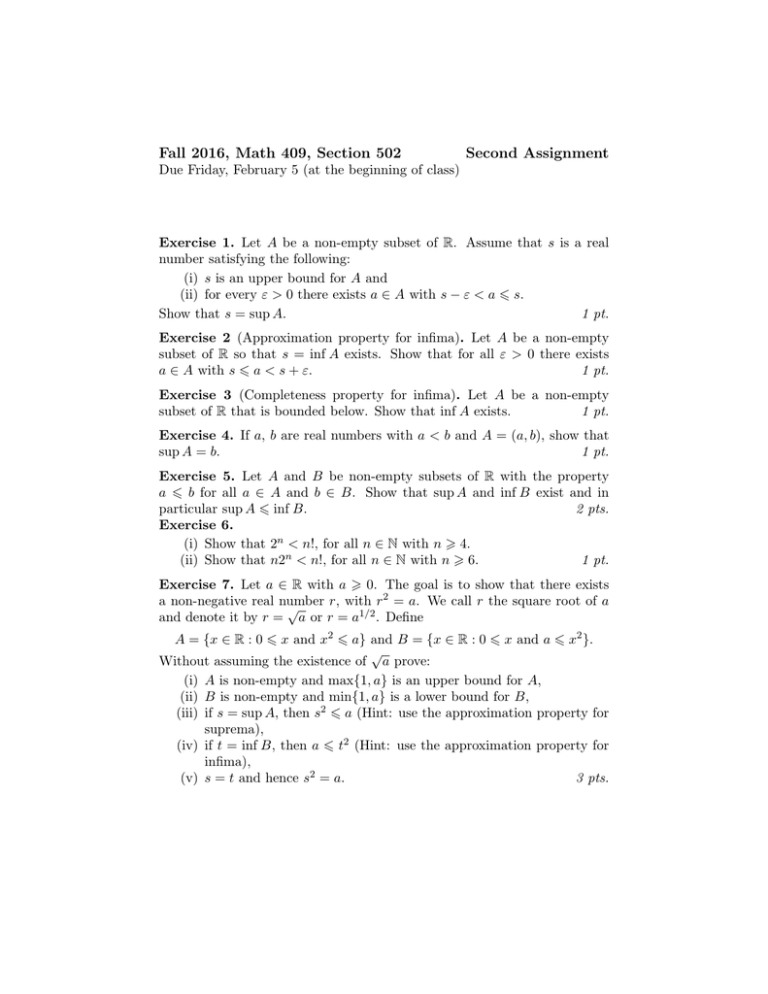
Fall 2016, Math 409, Section 502
Second Assignment
Due Friday, February 5 (at the beginning of class)
Exercise 1. Let A be a non-empty subset of R. Assume that s is a real
number satisfying the following:
(i) s is an upper bound for A and
(ii) for every ε > 0 there exists a ∈ A with s − ε < a 6 s.
Show that s = sup A.
1 pt.
Exercise 2 (Approximation property for infima). Let A be a non-empty
subset of R so that s = inf A exists. Show that for all ε > 0 there exists
a ∈ A with s 6 a < s + ε.
1 pt.
Exercise 3 (Completeness property for infima). Let A be a non-empty
subset of R that is bounded below. Show that inf A exists.
1 pt.
Exercise 4. If a, b are real numbers with a < b and A = (a, b), show that
sup A = b.
1 pt.
Exercise 5. Let A and B be non-empty subsets of R with the property
a 6 b for all a ∈ A and b ∈ B. Show that sup A and inf B exist and in
particular sup A 6 inf B.
2 pts.
Exercise 6.
(i) Show that 2n < n!, for all n ∈ N with n > 4.
(ii) Show that n2n < n!, for all n ∈ N with n > 6.
1 pt.
Exercise 7. Let a ∈ R with a > 0. The goal is to show that there exists
a non-negative real number
r, with r2 = a. We call r the square root of a
√
and denote it by r = a or r = a1/2 . Define
A = {x ∈ R : 0 6 x and x2 6 a} and B = {x ∈ R : 0 6 x and a 6 x2 }.
√
Without assuming the existence of a prove:
(i) A is non-empty and max{1, a} is an upper bound for A,
(ii) B is non-empty and min{1, a} is a lower bound for B,
(iii) if s = sup A, then s2 6 a (Hint: use the approximation property for
suprema),
(iv) if t = inf B, then a 6 t2 (Hint: use the approximation property for
infima),
(v) s = t and hence s2 = a.
3 pts.
